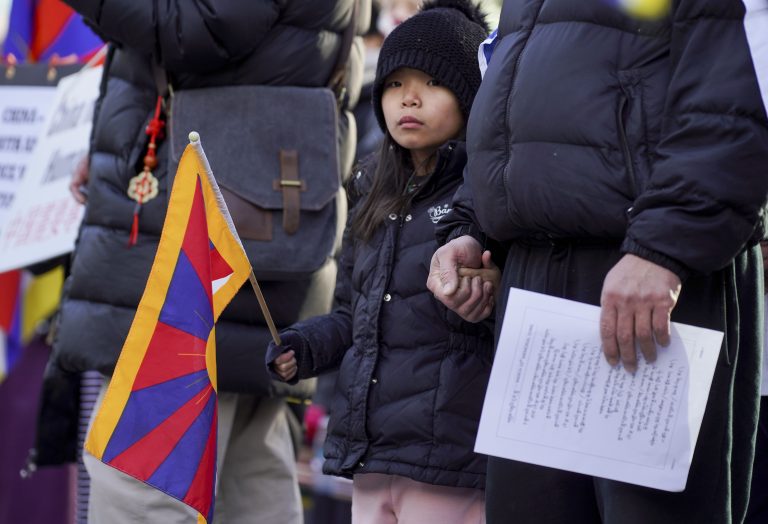On Tuesday, June 28, Danielle Smith — conservative candidate for leader of the United Conservative Party of Alberta (UCP) — called on Elon Musk to help break through the Canadian government’s proposed internet censorship bill.
The bill (C-11) would grant the Canadian Radio-television and Telecommunications Commission (CRTC) control over what can be broadcasted on streaming platforms; something that Canadian content creators are raising the alarm over.
Bill C-11 and censorship
UCP candidate Danielle Smith tweeted to Elon Musk, CEO of satellite internet service Starlink, to help overcome Bill C-11, introduced by Canadian Prime Minister, Justin Trudeau.
“Hey @elonmusk I’m running to be Premier of Alberta. We still value free speech here. Could Alberta setup an independent ISP using @starlink to bypass the new @justintrudeau internet censorship bill?” she tweeted.
On June 22, Bill C-11 was passed in the Canadian House of Commons and is now on its way to the Senate for approval. The bill aims to require streaming platforms like Netflix, YouTube, Amazon Prime, Spotify, and others to recommend more “Canadian content” and to “contribute in an equitable manner to strongly support the creation, production and presentation of Canadian programming.”
Success
You are now signed up for our newsletter
Success
Check your email to complete sign up
Responsibility for the bill would be given to the CRTC, allowing them control over what can be deemed “Canadian content.”
According to Heritage Minister Pablo Rodriguez, the bill would:
- Ease the search of Canadian stories and music,
- Support Canadian artists and job opportunities,
- Support “racialized and indigenous” content creators,
- Make content more accessible,
- Allow streaming services to share Canadian culture
However, the bill has been met with criticism by many who deem the legislation as internet censorship, and grants the CRTC the power to restrict content that they consider detrimental.
Law Professor Michael Geist said that Bill C-11 would use “algorithmic manipulation” to give priority to Canadian content, threatening content creators in the country.
“The notion that the CRTC is only tinkering with algorithms indirectly rather than directly makes little difference given the harms that the regulation can cause to Canada’s digital creators, who may find the algorithmic manipulation at home has disastrous consequences abroad,” Geist wrote.
YouTube is also worried that Bill C-11’s amendments would neglect “thousands of Canadian content creators.”
“In a statement, YouTube Canada’s head of government affairs and public policy Jeanette Patell said the company is ‘disappointed that the concerns of thousands of Canadian creators were not recognized through amendments that would have reflected the minister’s intention for Bill C-11’s scope,’” True North reported.
“It is possible to support Canadian artists without compromising the creator ecosystem. We will continue to propose solutions and hope to work closely with the Senate towards this shared goal,” Patell said.
READ MORE:
- Elon Musk’s SpaceX Could See Its Valuation Rise to $125 Billion, Sources Say
- Musk: ‘Woke Mind Virus’ Will Make It Impossible for Humanity to Reach Mars
- Musk: Biden Dead Wrong on Chances of Recession
- Elon Musk May Have Lost 100s of Millions on His February Bitcoin Gamble
In a Parliamentary hearing in early June, Canadian YouTuber J.J. McCullough — who has 782,000 subscribers — shared his opposition to the bill, worried that the YouTube algorithm’s cohesion with CRTC’s requirements will threaten his and other YouTube channels.
“Overnight, creators are going to wake up and find the kind of content that has previously been successful in an unregulated YouTube is no longer successful in a regulated YouTube,” McCullough told Macleans.
“As a result, they will either have to change the nature of content that they make in order to make it more overtly Canadian — whatever that means — or they could possibly be at a disadvantage. That could mean their viewership, and thus revenues, take a hit. That’s something that I think is quite worrying to a lot of YouTubers.”
Danielle Smith’s plea to Musk hopes for Starlink to provide an independent internet service provider to bypass Bill C-11.
Canadian psychologist Jordan B. Peterson tweeted, “[Canadians] better learn damn quick to use a VPN.”
“Bill C-11 has made us the most censorship-laden country in the developed world. Congratulations [Justin Trudeau] you’ve finally put the country you don’t even believe in a number one spot,” Peterson said.
Danielle Smith, a former member of Alberta’s Wildrose party, is currently running for leadership of the UCP, and the premiership of the province of Alberta, following the resignation of Premier Jason Kenney in May.













